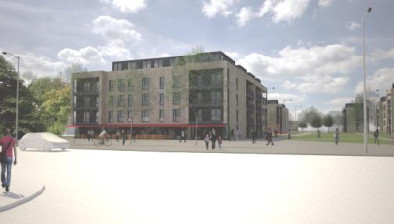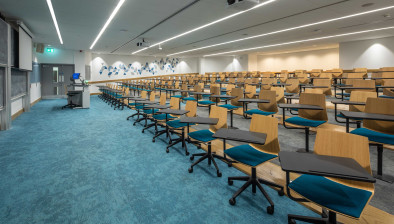University and industry to produce intelligent technology to improve performance of buildings
 A partnership between academia and industry is aiming to produce an easy and intelligent way of capturing the performance of modern buildings.
A partnership between academia and industry is aiming to produce an easy and intelligent way of capturing the performance of modern buildings.
The system aims to provide vital information on how much the buildings cost to run, how much energy they consume, how little they damage the environment, and in general, how sustainable they are.
In order to produce an optimum design that simultaneously satisfies all the client’s requirements, designers need a wealth of data from design, construction, maintenance and operating records. The data may be collected by hand or through sensors, and may be stored as hard copy or electronically.
Funded by Innovate UK, Whole Life Consultants Ltd (a spin out company from the University of Dundee specialising in contract research in the area of construction management) and the University of the West of Scotland are collaborating to produce a prototype, web-based digital system that will streamline data collected throughout the lifecycle of a building from all those involved in its design, construction, operation and maintenance.
Professor Malcolm Horner, chairman of WLC Ltd, said: “This exciting project will seek to create a comprehensive, integrated picture of the performance of buildings that will help designers, contractors, maintenance engineers and operators deliver best value for their clients. One of the key aspects of this project will be effective engagement with stakeholders in the industry - if you would like to be involved I would encourage you to get in touch.”
The system will create a framework based on a Building Information Model (BIM) in which all necessary data can be collected from all building components and interrogated to ensure that the building creates maximum value for the client.
The system can be tailored to suit the requirements of different clients and the data it collects can be used to optimise subsequent building designs.
Professor Milan Radosavljevic, assistant dean research and enterprise in the School of Engineering and Computing at the University of the West of Scotland and an academic lead on this project, added: “The developed prototype will aim to transform how data from buildings and other built assets is managed through life.”
The University of the West of Scotland’s School of Engineering and Computing will advise on the platform design and optimisation for the software development.
In assessing the feasibility of developing the tool commercially, the partners will also conduct a market survey to ensure that the tool meets users’ needs and to assess the strength of demand.























